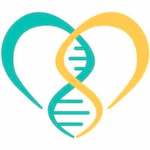Gould Syndrome Awareness Day Date in the current year: April 12, 2026
 Gould Syndrome Awareness Day is observed annually on April 12 to raise awareness of a rare genetic disorder caused by a mutation in the COL4A1 or COL4A2 genes, which are important for the synthesis of type IV collagen.
Gould Syndrome Awareness Day is observed annually on April 12 to raise awareness of a rare genetic disorder caused by a mutation in the COL4A1 or COL4A2 genes, which are important for the synthesis of type IV collagen.Collagen is the major structural protein in the human body, found in bones, cartilage, ligaments, skin and tendons. There are 28 types of collagen, which vary in structure and functionality. Type IV collagen is a major structural component of the basement membrane, which provides support for cells and tissues.
There are six human genes associated with type IV collagen, COL4A1 through COL4A6. COL4A1 and COL4A2 play a role in the process of new blood vessel formation (angiogenesis). Because type IV collagen is found in almost all tissues in the body, mutations in COL4A1 and COL4A2 can affect multiple organs, including the brain, cardiovascular system, eyes, kidneys, and muscles.
The disease caused by mutations in COL4A1 and COL4A2 was named Gould syndrome after Dr. Douglas Gould of the University of California San Francisco, who discovered these mutations in mice while studying glaucoma and first described the syndrome in 2003. The mutations responsible for Gould syndrome can be inherited (in about 30% of cases) or new (de novo).
The most common symptoms of Gould syndrome are abnormal blood vessels in the brain, eye development defects (abnormal eye movements, cataracts, early-onset glaucoma), kidney abnormalities, and myopathy (muscle disease). However, the full spectrum of Gould syndrome is not yet known because the syndrome has been identified relatively recently and new aspects, such as lung abnormalities, continue to be discovered.
The specific signs and symptoms and their severity vary from patient to patient. For example, blood vessel abnormalities can lead to epilepsy and stroke; about five in 10,000 newborns with the mutation will have a stroke, and one in 10,000 fetuses will have a stroke in utero. However, many patients have only mild age-related brain abnormalities that cannot be detected without MRI.
There is no cure or even standard treatment protocol for Gould syndrome because the disease is still being researched and each case is unique. The Gould Syndrome Foundation provides a list of general clinical recommendations for patients and their caregivers. However, it is not intended to replace the personalized care and guidance of a primary care physician and a multidisciplinary medical team that should include specialists in cerebrovascular disorders, cardiovascular disorders, ophthalmology, nephrology, and musculoskeletal disorders.
Gould Syndrome Awareness Day is observed on April 12 to educate the public about this rare genetic disorder and advocate for research. You can get involved by learning more about Gould syndrome and sharing what you’ve learned with others, donating to an organization that supports Gould syndrome patients or funds research, hosting a fundraiser, and spreading the word on social media using the hashtag #GouldSyndromeAwarenessDay.
- Category
- International Observances
- Tags
- Gould Syndrome Awareness Day, international observances, awareness days, genetic disorders, Gould syndrome